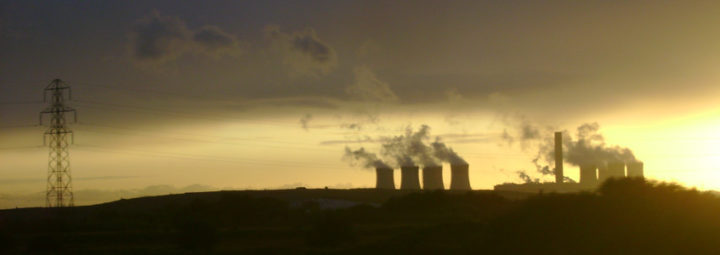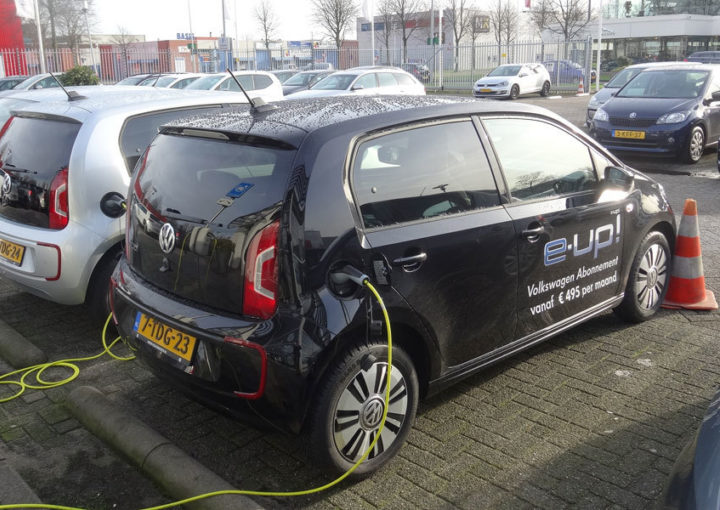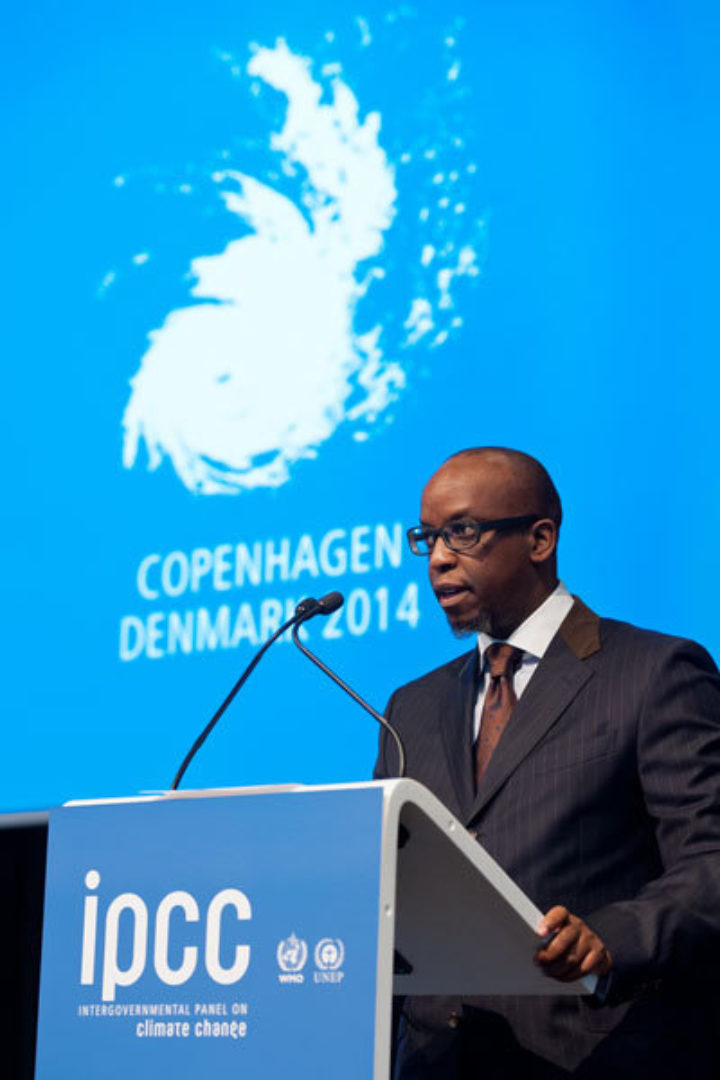Embracing the elephant: the IPCC and fossil fuels
UN climate panel's Synthesis Report will change the conversation on climate change
By George Smeeton
Share
Last updated:
By Richard Black, ECIU Director
The Intergovernmental Panel on Climate Change (IPCC) Synthesis Report promises to change the conversation on the pluses and minuses of tackling change in a profound way.
‘Limiting risks across reasons for concern would imply a limit for cumulative emissions of CO2,’ it says in its report, released on 2 November after a week-long finalisation meeting.
‘Such a limit would require that global net emissions of CO2 eventually decrease to zero and would constrain annual emissions over the next few decades.’

As I suggested last week, fossil fuel use has long been the elephant in the room of climate diplomacy.
You can talk about limiting the global average temperature rise to 2ºC or some other figure; you can talk about limiting the atmospheric concentrations of greenhouse gases.
But what constraining climate change means in practice is reducing and perhaps eliminating greenhouse gas emissions, particularly carbon dioxide, much of which remains in the atmosphere for centuries.
And, as CO2 from burning fossil fuels and industrial processes accounts for 65% of emissions, constraining climate change means reducing and perhaps eliminating fossil fuel use.
So much has always been implicit. But now the IPCC has made it explicit.
What’s really interesting is that although this conclusion has been present in the IPCC assessment process since the Working Group One report emerged last September, it was not among the phrases selected by experts for inclusion in the draft summary that they prepared going into last week’s meeting with government delegates.
Instead, it was elevated into the summary during the week’s discussions; it was, in fact, government delegates who proposed its inclusion.
Electric future
It’s important to dig a little bit deeper into what the ‘ending fossil fuels’ message actually means in practice. The modeling work that feeds into the IPCC’s deliberations envisages three basic trends:
- a significant reduction in energy waste, making use of energy more efficient
- a significant scaling up of low-carbon electricity generation, notably renewables, nuclear, and fossil fuel use with carbon capture and storage
- electrification of sectors that currently burn fossil fuels directly, such as home heating and transport.
It looks like a massive transformation – and it is. Power stations have a lifetime of many decades; transport systems cannot be reformed overnight; people buy stuff that they want to use for years.

Meanwhile, the world population is growing, and people aspire to lifestyles that use energy more intensively. And developing countries need room to develop – which would imply richer nations transforming first.
So, what the IPCC conclusion emphatically does not mean is that fossil fuel burning can continue happily until 2099 and then be switched off suddenly.
On long timescales, the temperature rise and other climate change impacts depend most critically on how much carbon dioxide is emitted to the atmosphere in total – all of the emissions across many years added together.
It’s like having a finite amount of money in your bank account – you can splurge it out in one go, or control spending and eke it out over a longer period.
Hence the other part of the key phrase I quoted above – ‘…and would constrain annual emissions over the next few decades.’
And there’s a trade-off. Tight caps now mean the tail of emissions stretching out close to 2100, whereas gluttony now would imply the need to end unabated fossil fuel use many decades sooner and follow it with a period of ‘negative emissions’ – sucking CO2 from the air.
Banking for success
At current rates of spending, the ‘carbon bank account’ will be exhausted in about 30 years – so in its most basic terms, the choice before policymakers is:
- continue with business-as-usual emissions for 20 years and then try to turn societies’ energy use on a dime
- continue with business-as-usual emissions and hope the science is wrong, acknowledging that if it isn’t, future generations will face increasing climate risks that will, if all the major economic analyses are right, cost more to deal with
- begin the transformation to a low-carbon society now and complete it as soon as possible, accepting the short-term costs.

It’s also important to recall that this area is rife with uncertainties. The carbon budget figure above is calculated to give a two-thirds chance of keeping global warming below 2ºC; more stringent action might be needed if the budget turns out to be too generous.
Some low-carbon technologies may turn out to be more expensive than assumed, or may not work as well as proponents assume – carbon capture and storage, for example, is yet to be rolled out at scale.
Climate impacts could constrain the capacity of countries, particularly in the developing world, to invest in a low-carbon transformation.
All of which means, in a nutshell, that the sailing is even less plain than the simple '2100 phase-out' line might imply.
Planning for resilience
Eliminating fossil fuel use isn’t the only important part of the IPCC prescription for a climate-resilient future.
Adaptation – preparing against climate impacts present and future – is much needed, it says – and combining adaptation with cutting carbon emissions is the recipe for ‘limiting climate risks’.
There is important language on the presence of serious climate impacts even at warming of 1-2ºC; there is talk about the co-benefits of reducing emissions, such as improved health from less polluted air and better energy security; there is discussion of ocean acidification’s impacts and the potential of reducing emissions from farming.
And there is explicit acknowledgement that cutting emissions ‘could devalue fossil fuel assets and reduce revenues for fossil fuel exporters’.
That last-named paragraph is one reason why the ‘fossil fuel phase-out’ idea will alarm some governments, businesses, and ordinary people. It is very probable that some may decide it’s simply not feasible.
But the IPCC report reckons that it is, and at marginal cost if governments act together. And it spells out in simple language what the risks of business-as-usual are for the world of our future generations.
At the very least, by putting fossil fuel use front and centre, the IPCC is ensuring that we now have a debate on terms that everyone can understand.
Share